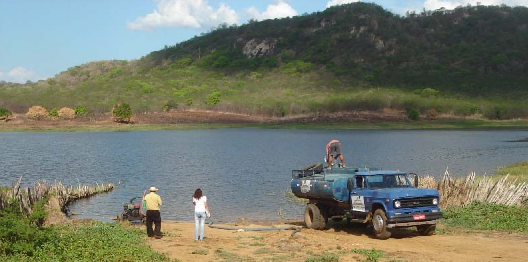The Columbia Water Center Brazil Infrastructure Project, sponsored by The PepsiCo Foundation, developed a new methodology to design and implement water infrastructure for rural residents in the drought-stricken state of Ceará, Brazil. In the summer of 2010, CWC completed two pilot projects based on this methodology* which provided the 1,200 residents of Ingá and Pedra Fina with household water for the first time.
As part of the project, the CWC team completed a survey of residents to assess the impact of this intervention.
According to the survey, prior to the implementation of the project, over 82 percent of respondents said that they spent more than an hour each day traveling outside the home to access water, with 65 percent devoting more than 3 hours each day.
Since the completion of the project, 79 percent now spend less than half an hour accessing water; only 2 percent said they have to spend more than 2 hours, and no one spends more than 3. One hundred percent of respondents said that the project had improved their lives, their families’ lives, or the life of the community, and all respondents said they were either satisfied or very satisfied with the quality of the piped system.
Ninety-five percent reported having more time for other activities now that the piped water system was in place, with more than half saying they could now afford to devote more time to other activities, including growing vegetables and cultivating fruit.
The overwhelming success of the project provides added support to the Municipal Water Plan (PAM) approach created by the Columbia Water Center team. The State of Ceará has adopted the toolkit and manuals developed for their rural drinking water development programs.
Read More: A Municipal Water Plan (PAM) for Milhã

